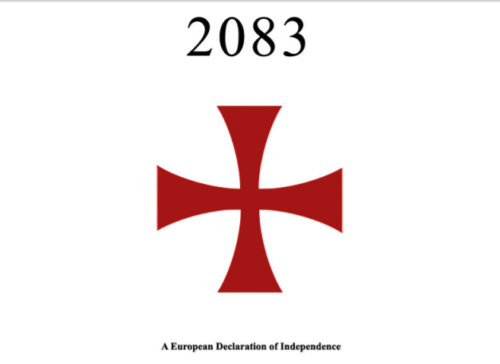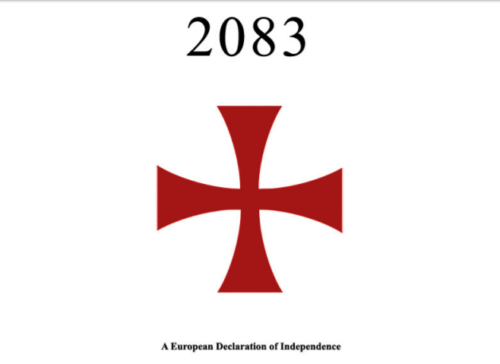
This reading carries on from here.
In this section (pages c. 90-200), Breivik details the history of relations between the West and Islam. In his analysis here, there is nothing peaceful – Islam has been attempting to conquer the West since its inception, and would have succeeded already if not repelled at either Tours or Vienna, or other places.
The destruction of the Ottoman Empire at the end of World War One, Breivik claims, is how the West has earned some breathing space against this relentless assault. The Caliphate was shattered after the Battle of Megido in 1917, and only because of this has Islam been unable to attack Europe in recent decades.
With sentences such as “the Islamic sources make clear that engaging in violence against non-Muslims is a central and indispensable principle to Islam,” and “Those cultures and individuals who do not submit to Islamic governance exist in an ipso facto state of rebellion with Allah and must be forcibly brought into submission,” a particular kind of Nordic bleakness shines through in this document.
It’s a kind of bleakness that has resigned itself to violence as a grim but inevitable outcome of the play of natural forces. They are attacking us is Breivik’s message. They always have been attacking us and they always will be.
Perhaps the following paragraph summarises this section of the document best:
The spectacular acts of Islamic terrorism in the late 20th and early 21st centuries are but the most recent manifestation of a global war of conquest that Islam has been waging since the days of the Prophet Muhammad in the 7th Century AD and that continues apace today. This is the simple, glaring truth that is staring the world today in the face — and which has stared it in the face numerous times in the past — but which it seems few today are willing to contemplate.
In this section Breivik continues to emphasise the point that no reformation of Islam is possible, for the reason that would-be reformers are unable to refer to any scriptural injunctions towards peace with non-believers. The example set by Muhammad himself was an example of war and of violence, so anyone with a will to reform is snookered from the beginning.
Essentially, anyone trying to move Islam away from violence has to work against the scriptures. Therefore, Islam cannot be used as a civilising force in the same way that Christianity could; no-one could discover through serendipity a message of peace and tolerance in their study of the Koran.
From reading this section there are two elements of Breivik’s reasoning that seem objectionable.
The first is that, although the list of historical atrocities by Muslims and modern apologies for these atrocities by Muslims is long, there are over a billion Muslims and Islam stretches back to the seventh century. As an inevitable consequence of existing for that long on a planet as violent as Earth, a cherry-picked list of bad things committed by or in the name of a group that large and old is going to be lengthy.
There’s no doubt, for example, that one could compile a hundred pages of grossly supremacist and chauvinistic admonitions to violence from a number of nationalities, including the Spanish, the French, the Germans, the British, the Russians, the Chinese, the Japanese, the Mongols, Huns, Persians and others, not to mention every other major Abrahamic sect.
Breivik may well have a point that most Westerners are not taught a deep general historical knowledge of Islam, but this only reveals a kind of autism on his part – after all, most people couldn’t care less about history full stop, let alone someone else’s.
The second obvious point of objection is that, although Breivik is correct in many ways when he criticises the unwillingness of Western historians, historical educators, or politicians to write or speak honestly about Islam, he doesn’t say much about an alternative.
If his contentions about the warlike nature of Muhammad and of Islam are accurate, and that they intend to subjugate the entire rest of the world, then there is a very good reason to not acknowledge this: doing so would be tantamount to an immediate declaration of war.
If Western leaders chose to go on television and say that the Prophet Muhammad was a pedophile and that the history of Islam was one of bloodshed, it would become a self-fulfilling prophecy in short order.
They appear to be gambling on the idea that, if left for long enough without provocation, Islam could reform itself. In this they stand in complete opposition to Breivik.
However, a wiser head might make the claim that if faced with an apocalyptic war today, just about any alternative is preferable, and therefore if there’s any doubt about the willingness of Islam to subjugate the world we should accommodate that doubt in our conversations with them.

